The Afghan families still waiting to find a home in the UK
A year after the Taliban retook control of Afghanistan, Lauren Crosby Medlicott speaks to some of the refugees who have made it to Britain

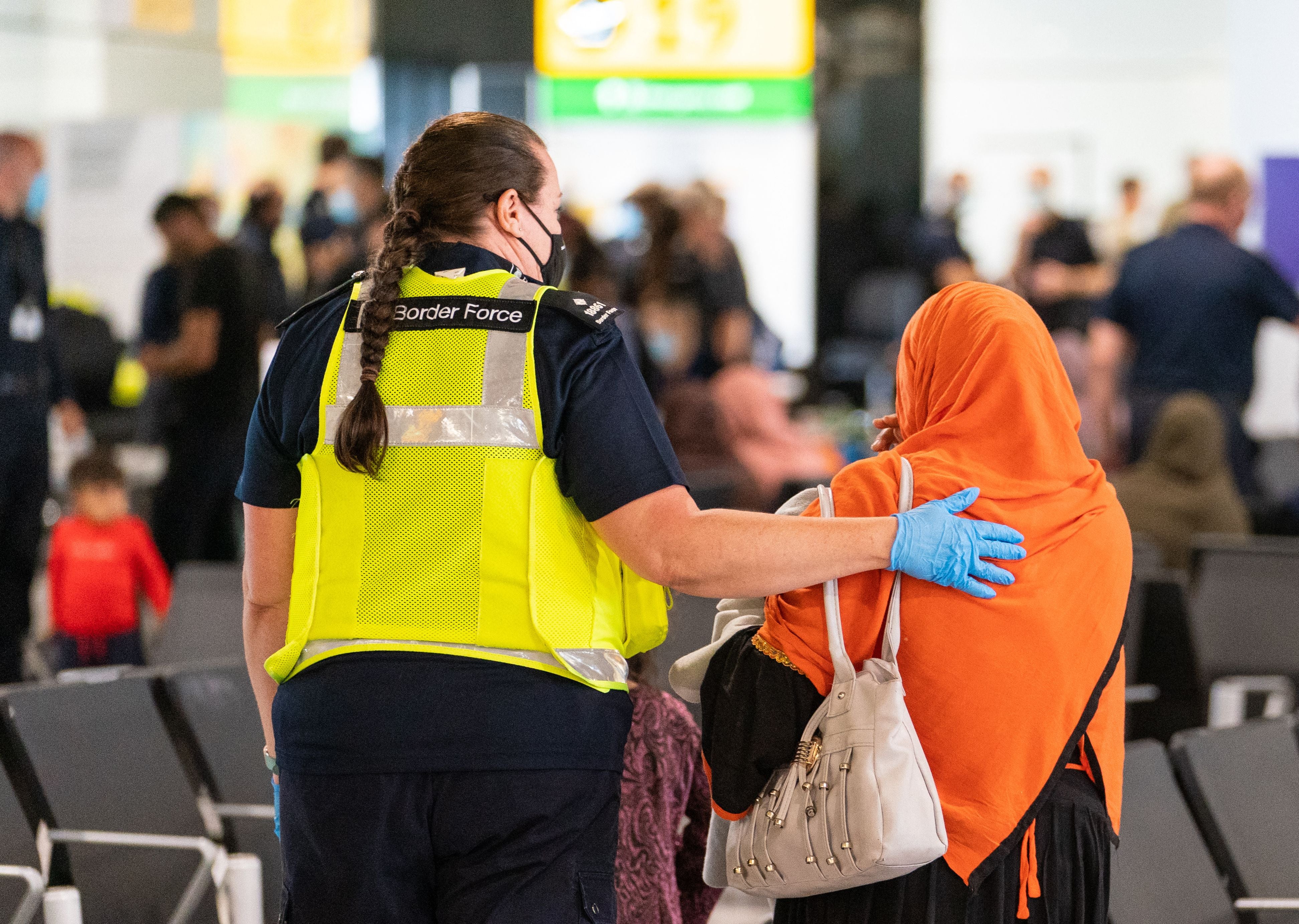
This time a year ago, news of the Taliban retaking control of Afghanistan was broadcast all over the world. We heard and read accounts of people desperate to escape from the impending tyranny that Afghanistan had worked incredibly hard to overthrow in the previous 20 years.
As an emergency response, The UK government promised to take 20,000 Afghan refugees over five years, starting on 6 January 2022, with 5,000 to be relocated within a year under the Afghan Citizens Resettlement Scheme (ACRS). Anyone resettled under the ACRS is promised indefinite leave to remain in the UK and the ability to apply for British citizenship after five years in the UK.
In the months following, the scheme focused on getting women, children, minorities, and those particularly at risk of danger from the Taliban out of Afghanistan and into the UK.
“Initially it was quite chaotic because everything was last minute – it was an emergency response,” explained Duncan Wells, Head of Resettlement at the Refugee Council. “People didn’t have money and their IDs were not sorted out. There were literally some people with a piece of paper that just said their name on it. There was a lot of initial working out who’s who and family make-ups. People had been plucked out of Afghanistan and placed in a hotel, without any understanding or preparation of what life’s like in the UK. A lot of people were quite shell-shocked.”
Following the initial chaos that ensued as Afghan refugees entered the UK, the government started to take steps to make sure people who had fled had what they needed. “Slowly but surely everything got sorted out,” says Wells. “The DWP [Department for Work and Pensions] started coming, we worked with the Home Office to work out who everybody was, we made sure people got documentation – although some people are still waiting – and eventually the kids were in school. Step by step we got there.”
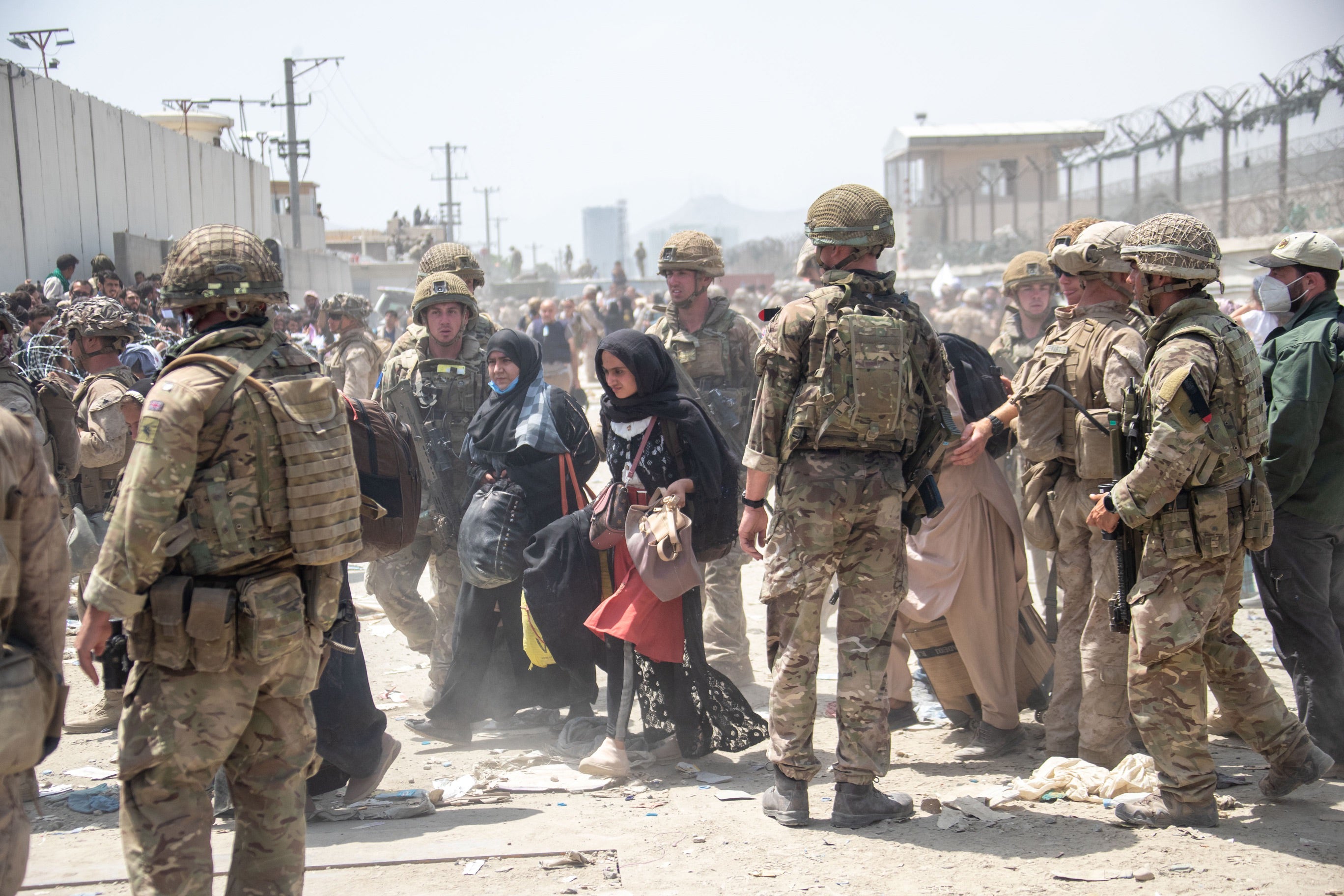
Even though progress was made to support Afghan refugees, there are still people waiting in hotels. Wells admitted: “My last understanding is that there’s between 60 and 70 hotels still in use. We never anticipated people being in hotels that long. People’s mental health is really suffering. Some hotels are working better than others. There’s one, for example, in the town – we’re offering a good level of support, and people seem fairly happy there. There are other hotels where it’s quite isolated, there isn’t a consistent offer of support, some people aren’t getting any support, and so people in those kinds of hotels are really struggling.”
Since there is not enough appropriate housing available to rehome Afghan refugees, hotels continue to be used.
Khkula Sherzad
Khkula Sherzad never imagined her life would look as it does today. Only a year ago, she was working as a journalist for the BBC in Kabul, Afghanistan. She would leave her family home in the morning, only returning after a day’s work at the office to spend time with her mother, three sisters, and husband. However, as the threat of a Taliban takeover of Kabul was whispered in rumours, Khkula grew nervous.
Even though Sherzad received her British residency in June, she is still waiting to be housed, but until she is given a home, she has found community within the hotel’s walls
“I have always felt afraid of the Taliban,” the 26-year-old tells me. “But for a long time, we didn’t actually see the Taliban in Kabul – it was just on TV.” On 15 August 2021, when Taliban negotiators arrived at the presidential palace to begin a transfer of power, Khkula woke to the news that the situation was not looking good. “I was told not to come in the office and to stay in the house.”
Even now, journalists working for international media organisations are notoriously unwelcome in Afghanistan under Taliban rule. Women journalists, like Khkula in particular, faced and continue to face the threat of danger.
After a month of hiding in her home, Khkula was told she would be helped by the BBC to apply for a visa and get out of Kabul. On 25 September, Khkula and her husband were flown to Pakistan and a month later, to England.
“It was very difficult to say goodbye to my family,” Khkula says, speaking about her mother and sisters. “I was afraid to leave them in that situation, where women’s rights were being taken away. Now they are alone.”
When she arrived at Heathrow, Khkula was taken to a hotel to quarantine for 10 days. “I was glad to be safe in the UK, but I also remembered the dark days Afghanistan faced,” she says. “I had deep depression for those 10 days. I woke from sleep every day crying.”
When her isolation period ended, Khkula was transferred to a hotel in Kent with her husband and several other Afghan families who had fled. “We are still in this hotel now,” she says. “It is so boring for us, having been in this hotel for eight months. But I try to busy myself with training and English courses. I would like to get my master’s degree in something related to political science and to work in media again, or maybe administration.” Khkula’s husband is hoping to start his second master’s degree soon, in international commercial law, while he continues working as an interpreter.
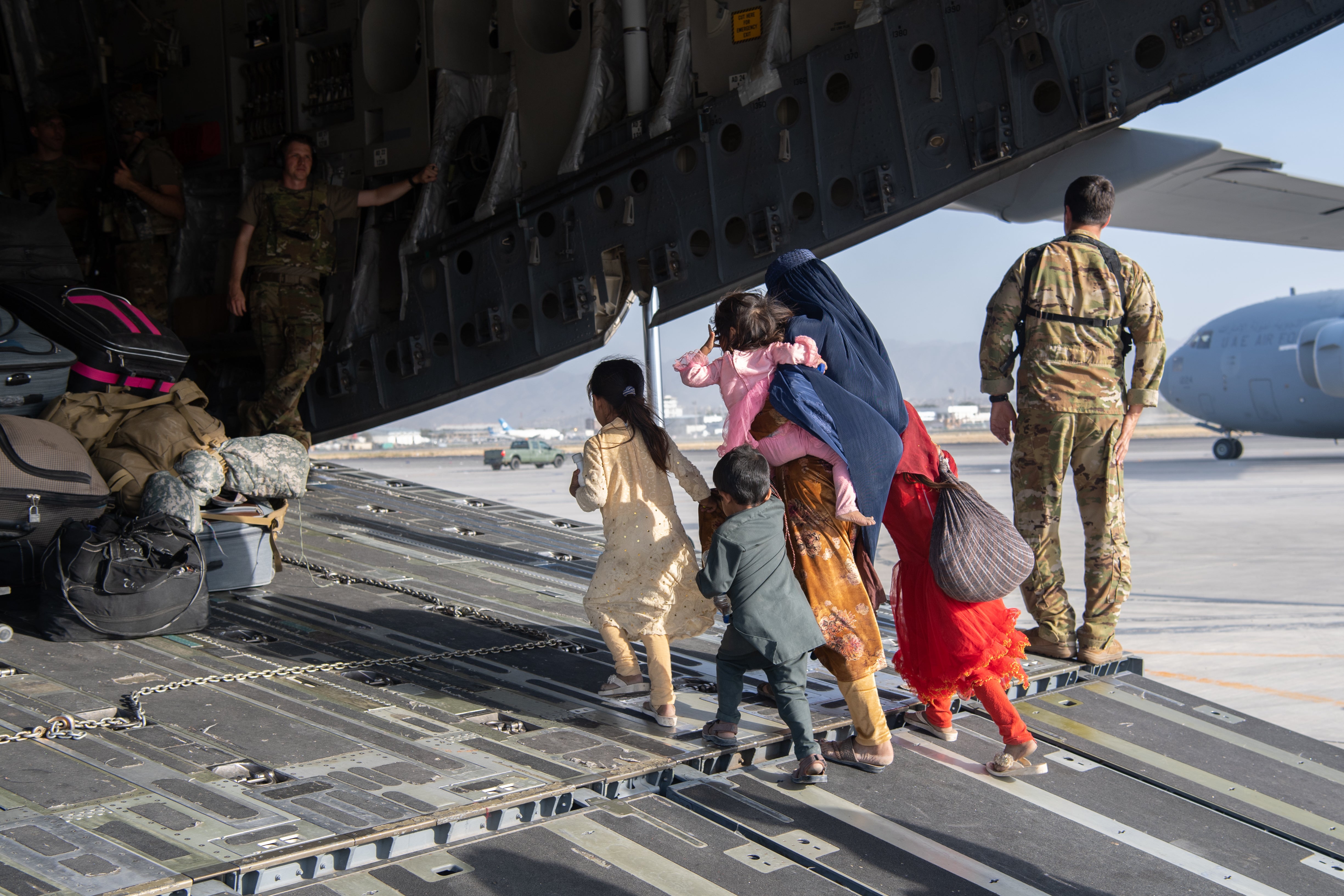
In a matter of weeks, Khkula plans to give birth to her first child, a bittersweet blessing in the midst of all she has gone through. “When my mum heard about my pregnancy, she was very happy but then she was crying,” Khkula says. “I am alone here and don’t have any experience with babies – it is very difficult for me. How am I going to care for my baby without anyone to help?”
Although Khkula has been quite contented with the meals served out the hotel, she occasionally craves traditional Afghan foods and wanders to buy her favourites from a local shop.
When she isn’t engaged in courses or training, Khkula spends time talking to her family in Afghanistan, sometimes up to three times a day, and making friends with the other people in the hotel. “I have a lot of friends now,” smiled Khkula. “Two or three of them are English girls who work at the reception desk. It is so good. I try to talk with them about my future and life plans. How I can get my education and improve my skills.”
Even though Khkula received her British residency in June, she is still waiting to be housed, but until she is given a home, she has found community within the hotel’s walls. “We are staying with so many Afghan people at this hotel,” she says. “We talk about the situation in Afghanistan and share our stories with each other. Sometimes, I think when I do move into a house, I may feel lonely.”
Khkula may be held up in a bit of a waiting game, unsure of what is next, but she is beyond appreciative to be safe in a country where she can raise her child and work without fear.
Since August 2021, thousands of well-qualified Afghan refugees have entered the UK, ready to integrate into their communities and offer their skills. “We have seen great motivation from Afghan clients to gain employment, 42 per cent of Afghan clients in our employment programming have already secured work, this includes accepting jobs in journalism, interpreting, agriculture, TV production/TV presentation, education, hospitality and warehouses,” says Genevieve Caston, Head of UK Programmes for the International Rescue Committee.
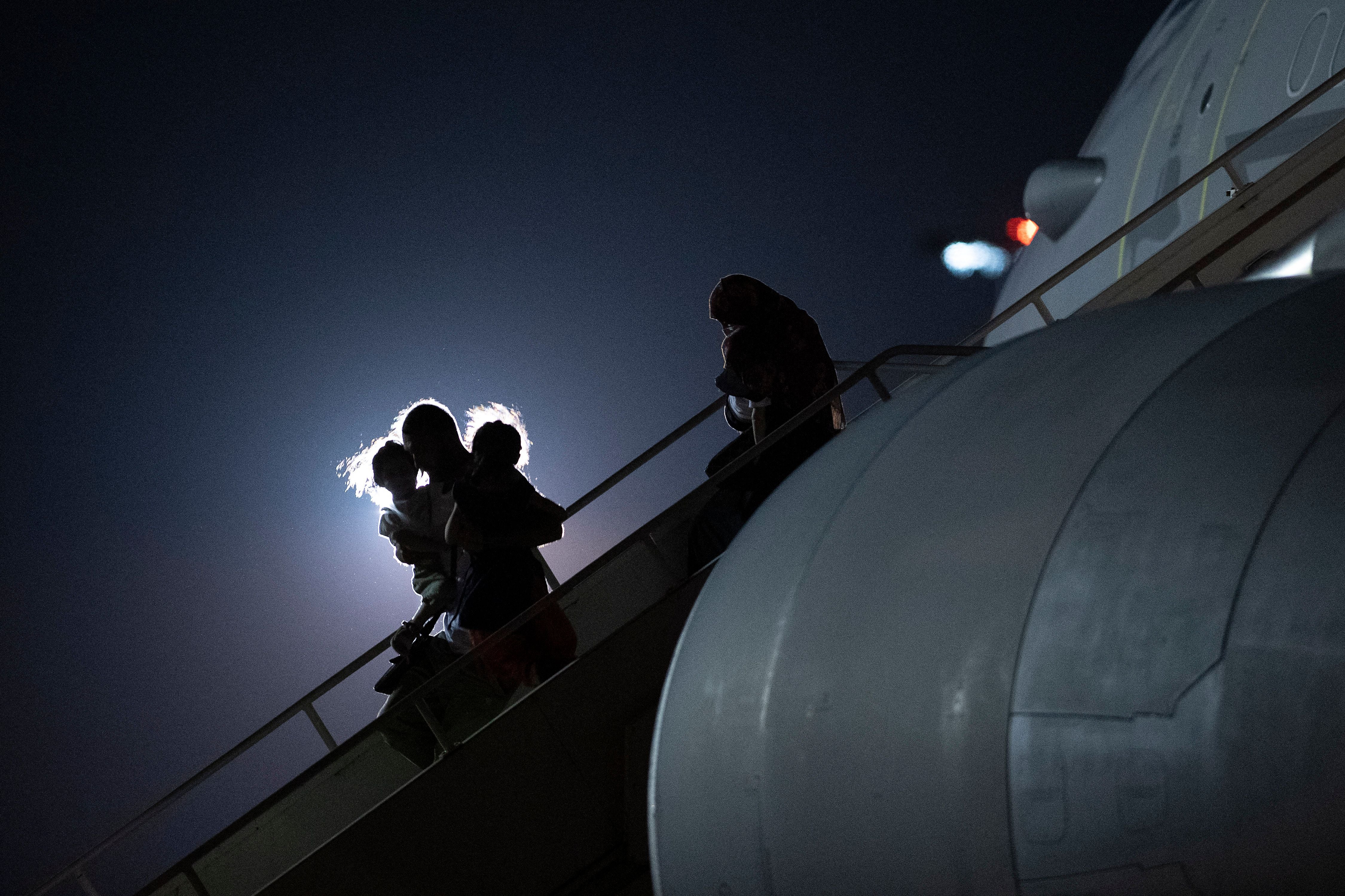
Yet many have faced barriers to employment once being resettled. Caston continued: “For instance, some of our Afghan clients who arrived a year ago have faced delays in receiving their Biometric Residence Permits (BRPs), which are necessary to accept an employment offer. It is also vital that the UK Government continues and scales up efforts to provide language support for Afghan refugees, so they can better navigate UK services and participate in community life.”
Muhammad Nasir Loodin
Muhammad Nasir Loodin had been waiting in Kabul airport for two whole days with his pregnant wife and two children, waiting to be flown out of Afghanistan, when they were finally evacuated by a military plane on 27 August.
The recent conflict and change of government, coupled with the worst drought in 27 years, have tipped the country over the edge. The economic collapse has sent food prices soaring
“There was no place to sit,” Muhammad remembers. “We had to stand for four or five hours at a time, unable to move. We had no food or drink. I was beaten by the Taliban in the airport. It was very hard. They were firing guns and my daughter was shouting, ‘don’t shoot, don’t shoot’. Those two days were the worst chapter of my life.”
Days before Muhammad made his escape when the Taliban captured Kabul, he was going about his normal routine, working as a logistics officer at the National Crime Agency (NCA).
“I got a call from a friend that had told us the Taliban were near Kabul city and that they were fighting,” Muhammad says. “Slowly it got worse and security in our office sounded an alarm and told us to leave the office.”
When the Taliban took power, they released prisoners, many of who would have known the work Loodin did.
Muhammad rushed to his wife and two children, then aged seven and five. “The chaos started after that,” recalled Muhammad. “I heard that people were fleeing. Everyone was going to the airport. It was a big trauma in Kabul.” Without a legitimate case or appropriate visa, Muhammad knew he didn’t have a chance of being evacuated.
Although Muhammad had applied online to get a visa to the UK, he doubted it would be granted. “I never thought I would get out of the country,” he says.
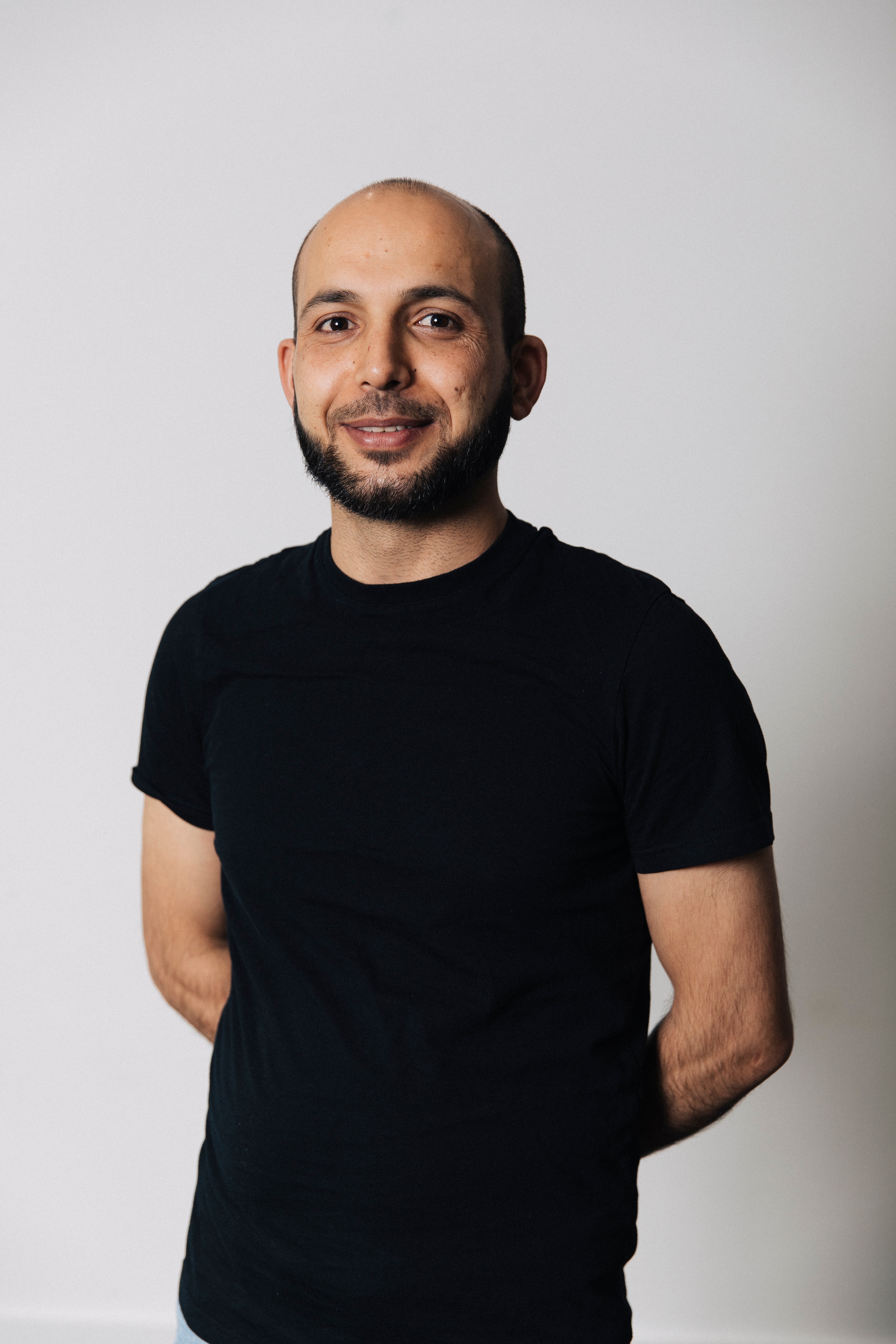
One evening, Muhammad had gone to a friend’s house to use his internet and resubmit his application. “I was stopped at a checkpoint with the Taliban. They asked me for my phone. All my details were on my phone because I was sending them to the NCA. I was captured, beaten, and tortured on the street just because they found English documents in my vehicle. I was terrified after I got home.”
The next day, Muhammad had an email informing him to get to the airport as soon as possible to be relocated out of Afghanistan.
After arriving at Heathrow Airport on 27 August, Muhammad and his family stayed in the Crowne Plaza Hotel for fourteen days during quarantine, before shifting to Southampton’s Holiday Inn Express. “At this hotel, my wife started bleeding,” recalled Muhammad. “The ambulance took her to the hospital, and we were told we lost the baby. She was fourteen weeks pregnant. I think this was because of all the stress we faced in the airport.”
Even though losing their baby was another traumatic experience to add to what the family had already endured, Muhammad had moments of joy staying in Southampton for three months. “People were so friendly,” he says. “I had been told because of my religion because I am Muslim, people in the UK wouldn’t like me. So I was thinking people would act weird with us. It was a big concern for me. But when I came here, I saw the people and they were the friendliest people. I was shocked.”
When Muhammad prepared to leave the Holiday Inn Express, he felt he was losing another family. “It was a great team of people – the hotel staff, to the council workers, to the volunteers. I’m still in contact with some of them today.”
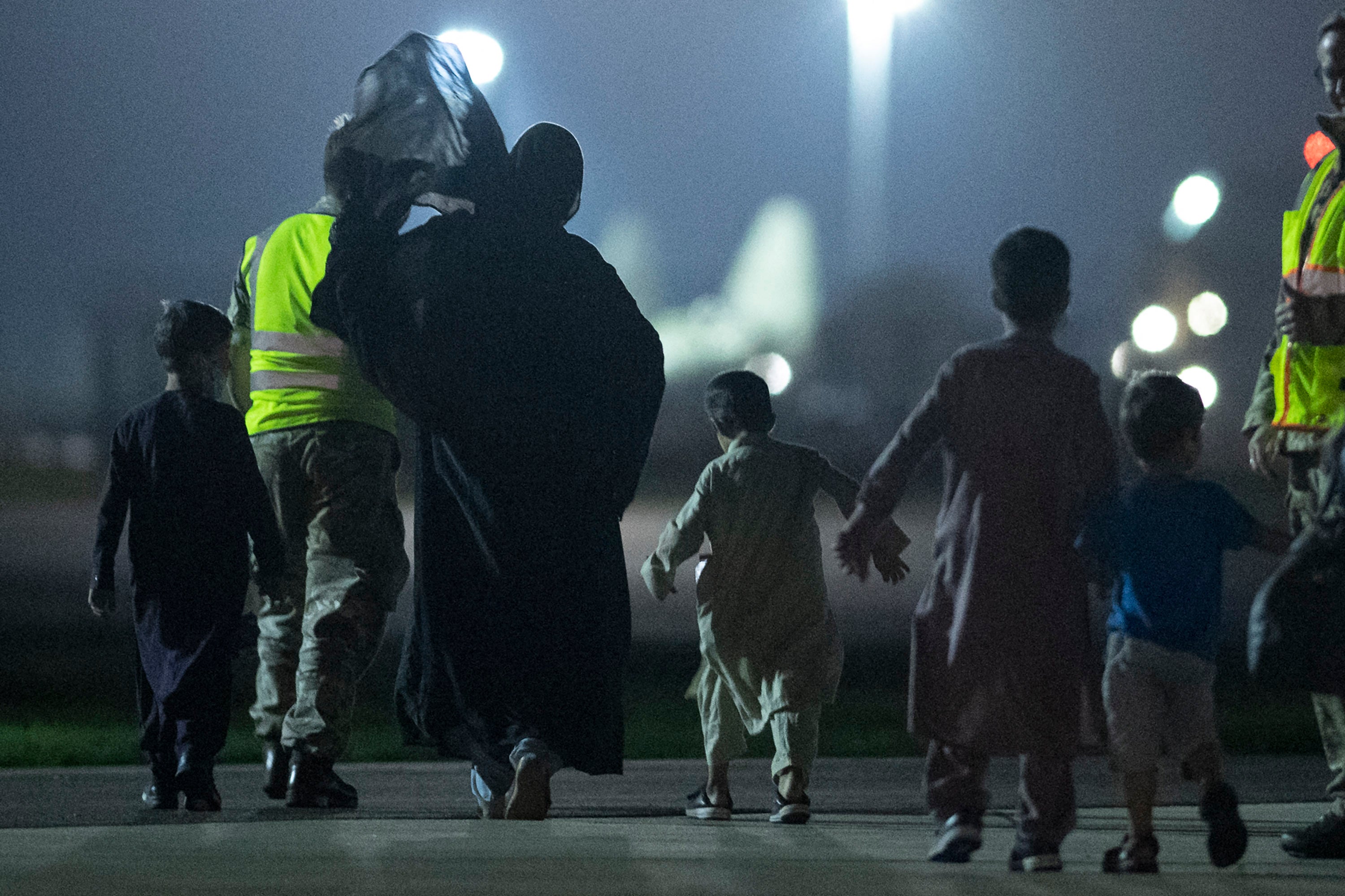
Muhammad and his family were moved to a house in Hampshire in November 2021, much to the surprise of his friends, who primarily wanted to live in London. “I told them I left my everything in Afghanistan. Now I have moved here to the UK – it doesn’t matter where in the UK – I am starting my life from zero again.”
He arrived at the house, finding it had been furnished with the primary things they needed to live, thankful for the gesture of provision when all the family had were the clothes on their backs.
Now housed and receiving Universal Credit, Muhammad and his family are trying to rebuild their lives in the UK. Both he and his wife have found a small group of friends, but the kids have taken longer to adapt, in part due to the language barrier. “Sometimes they have come home claiming they don’t want to go back to school. But the school staff have been amazing, supporting my kids a lot.”
Both of his children, especially his son, feel the repercussions of what they saw in Afghanistan. “My kids are still suffering. One day, there was very heavy rain when we were walking to school. I grabbed my daughter’s hand and told my son to run, not to stop. But then I saw my son crying and he asked if the Taliban were coming.”
There was another time fireworks were being lit at a party near Muhammad’s family and his son thought it was Taliban shooting and expected police officers to come. “I said to him the Taliban couldn’t get here, that he was safe here. Those traumas are the worst thing that happened. I can never forgive that.”
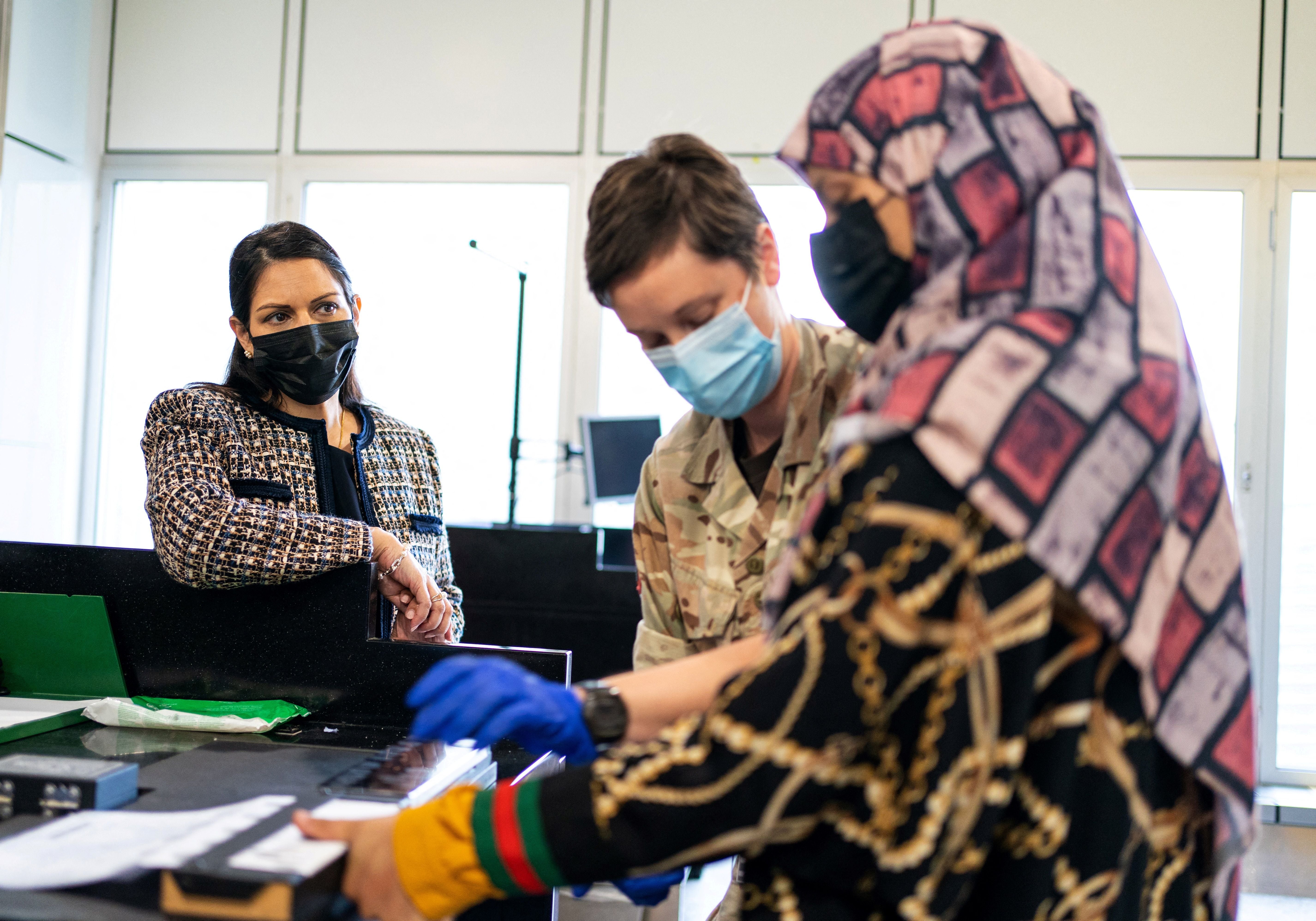
Despite the trauma, Muhammed feels happy, mostly. “I have to make myself happy. I’m happy I am safe and not staying in the war situation other people are in back in Afghanistan. But I would like to find a job.
Even though the widespread attention Afghanistan received last year prompted international attention and commitment, the need to evacuate the country remains today.
“The recent conflict and change of government, coupled with the worst drought in 27 years, have tipped the country over the edge. The economic collapse has sent food prices soaring,” says Caston. “Unaddressed, the current humanitarian crisis could lead to more deaths than twenty years of war.”
We have saved our own lives, but we have left our family behind stranded. If I take the wrong step, my family is in danger because of me. They can be killed at any time, any moment
While the Caston welcomes the setting up of the Afghan Citizens Resettlement Scheme, she and the IRC are concerned about its rollout. “Although the UK Government has pledged 20,000 places for Afghans in need in the next five years, approximately 6500 places are due to go to evacuees already in the UK, and the remaining places are too restrictive to meet the evident scale of need,” says Caston.
Evacuation is still necessary, but so is ongoing support and assistance for Afghans who have made it to the UK. “For Afghans refugees already in the UK, and new arrivals in the coming months and years, the UK Government must continue and expand its efforts to provide access to timely and appropriate integration services including permanent housing, language support, and access to the labour market to all refugees,” says Caston. “Biometric Residence Permits (BRPs) should also be delivered to Afghan refugees as soon as possible, to enable them to accept job offers but also to enable them to rent private accommodation and settle into their new communities in other ways such as obtaining a driving license.”
Abdul*
“My life ended in serious agony,” says Abdul, whose name has been changed. “And because of me, my entire family was in agony.”
Abdul, who is in his late 20s, had previously worked with the British Army in Afghanistan, and when Afghanistan was taken over by the Taliban, he received “letters, death threats, and intimidation” due to his previous ties to the UK. He knew he would need to flee his beloved home to protect his pregnant wife and two young children. He had already been approved to come to the UK and quickly headed to the airport to be airlifted out of the increasingly hostile country.
“I managed to get us into the airfield on 21 August and we stayed there for two nights and three days,” remembers Abdul. Following his evacuation to the UK, Abdul quarantined in Manchester and then was transferred to a hotel in London, where he and his family stayed for two months.
“At first, I wasn’t able to differentiate between day and night,” he says. “We were just sleeping all the time.”
The two months in London were filled with particular uncertainty as Abdul couldn’t assure his family where they would go next. “Three weeks after our arrival, a Home Office official came and we had a sigh of relief that at least someone has come to ask us about our situation,” he says. “In London, the kids were stranded in the hotel, crying.”
When the family ate meals in the dining room of the hotel, Abdul says he and his children often felt embarrassed having to adjust to a culture starkly different from their own.
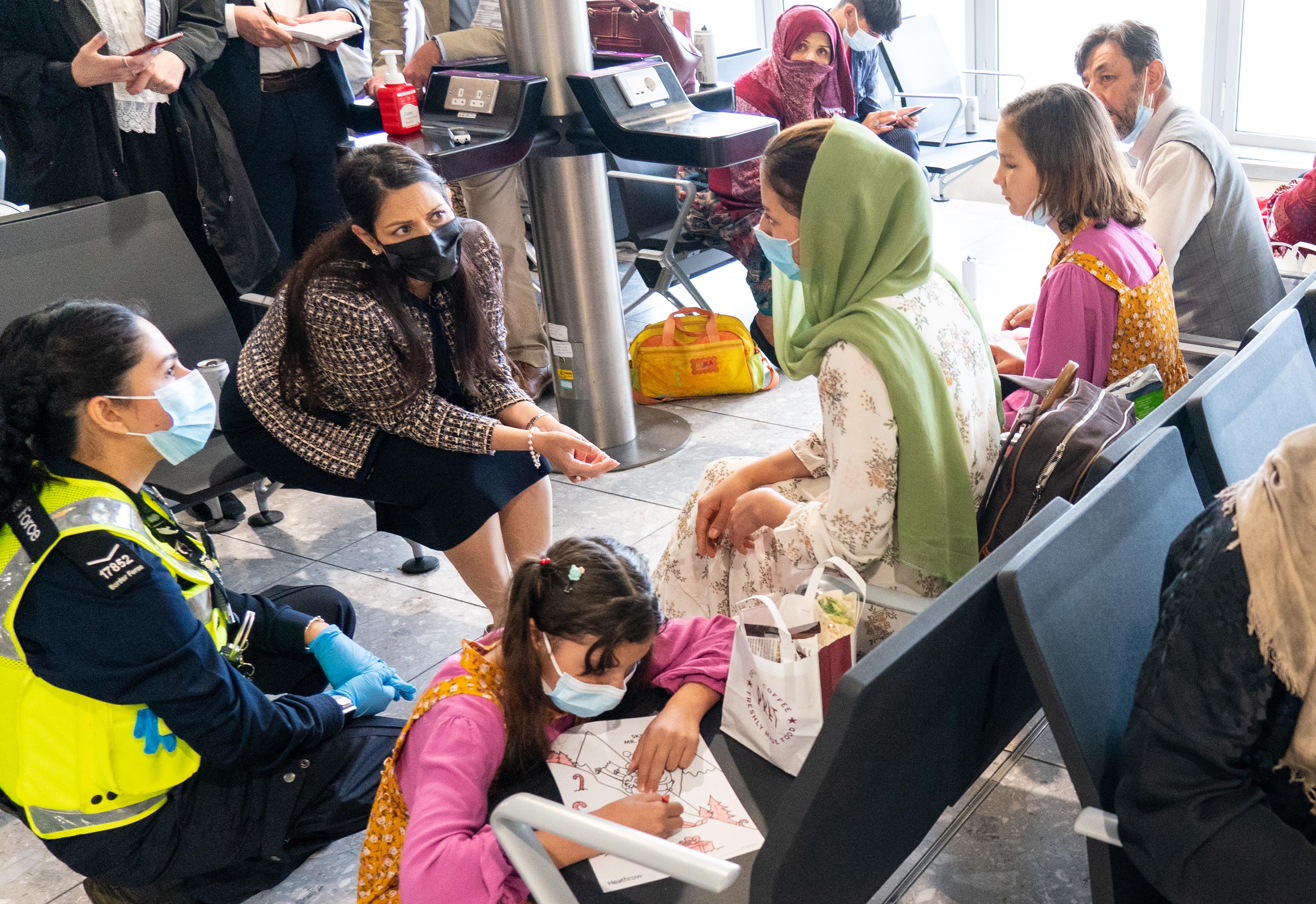
Near the end of October 2021, Abdul was given a house in Buckingham, and he hoped it would be the start his family needed following a tumultuous few months. “But there was no community there,” Abdul says. “And no Halal shop. I wasn’t able to get to a mosque to pray.”
During his first Ramadan in the UK, Abdul fasted alone with family during the day, but couldn’t find traditional Afghan foods to eat when the sun had gone down. To mark the end of Ramadan, Abdul took his children to the park alone, aware of the missing element of family, friends, and celebration. “We had no one to share the celebration with.”
For those eight months, Abdul says his family felt isolated and alone. Although he was grateful for safety, he mourned the loss of seeing his family, who are still facing danger in Afghanistan.
“We have saved our own lives, but we have left our family behind stranded. If I take the wrong step, my family is in danger because of me. They can be killed at any time, any moment. Those thoughts are circulating in our minds all the time.”
After eight months of living in Buckingham, Abdul was approved to move to a house in Windsor, where he and his family could access Afghan food, a mosque to pray in, and a community to engage with.
For entertainment, Abdul takes his children to the local park, a free activity to get out of the house. “The bills right now are high,” Abdul says. He is currently claiming Universal Credit, but is keen to be able to work, both for the income but also because he wants to contribute to society. “I’m a graduated, professional person – I would like to get a job.”
“This is our home now and will be adopting ourselves and integrating into the community.”
Join our commenting forum
Join thought-provoking conversations, follow other Independent readers and see their replies
Comments



Bookmark popover
Removed from bookmarks